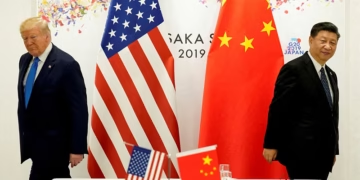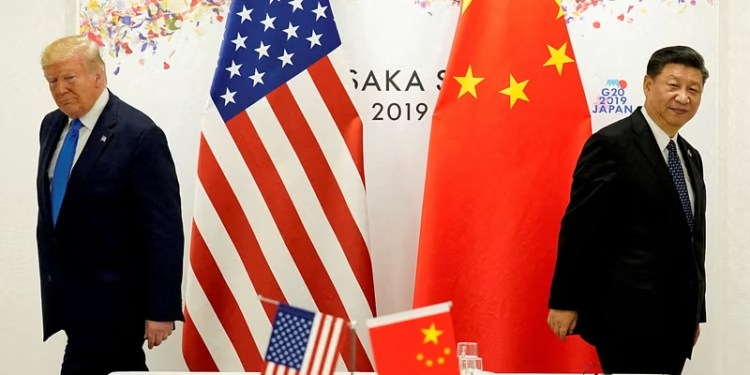China Accuses U.S. of ‘Blackmail’ Over Tariff Threat, Vows to Respond Firmly
Beijing:
China has strongly criticized U.S. President Donald Trump’s latest tariff threat, calling it “blackmail” and pledging to retaliate if the United States moves forward with its proposed 50% increase in duties on Chinese imports.
The Chinese Ministry of Commerce condemned Washington’s ultimatum—demanding Beijing reverse its recently announced 34% tariffs on U.S. goods within 24 hours—as a “mistake on top of a mistake” and reiterated that China will “fight to the end” if provoked.
Rising Tensions
“The U.S. threat to escalate tariffs against China once again exposes its blackmailing nature,” the ministry said in a statement on Tuesday. It emphasized that China favors dialogue, but warned that there are “no winners in a trade war.”
Should neither side back down, analysts warn that the total U.S. tariff burden on Chinese goods could soar to 104% this year, further straining already fragile global markets. Last week, Trump imposed new tariffs that pushed the average U.S. duty on Chinese goods to 76%. China responded with reciprocal 34% tariffs on a range of American exports.
Markets have already felt the impact. The Hang Seng Index in Hong Kong plunged by 13.2% on Monday—its worst single-day drop since the 1997 Asian financial crisis—before recovering slightly on Tuesday.
Beijing’s Strategic Posture
China’s firm stance is part of a broader strategy to position itself as a counterweight to what it describes as “unilateral bullying” by the U.S. Over the weekend, the ruling Communist Party signaled its readiness to weather a prolonged trade conflict, highlighting China’s economic resilience.
“U.S. tariffs will have an impact, but the sky won’t fall,” read an editorial in the People’s Daily, the official newspaper of the Communist Party. “Since the U.S. began this trade war in 2017, China has demonstrated strength under pressure—we develop and progress in the face of adversity.”
Expert Insights
Experts have raised doubts over the effectiveness of further tariff hikes. With Chinese exports already subject to average tariffs exceeding 60%, some argue that additional duties may have limited marginal impact.
“Whether tariffs rise by 50% or even 500%, the effect is diminishing,” said Xu Tianchen, senior economist at the Economist Intelligence Unit. “What China can do in response includes halting purchases of U.S. agricultural goods, mirroring tariffs, and expanding its export controls—particularly on critical chemical elements.”
As the standoff intensifies, the global community watches closely, aware that the economic implications extend far beyond bilateral trade, with potential ripple effects across industries and continents.
Also Read : Markets Plunge as Trump Tariffs Cause ₹20 Lakh Crore Loss in Just 10 Seconds















 Categories
Categories










